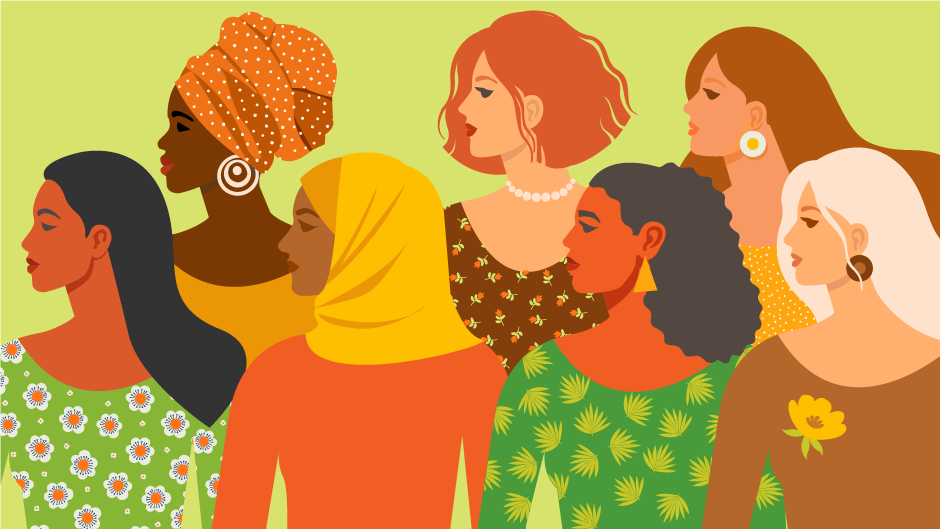A recently published United Nations report uncovers longstanding prejudice against women during the past decade.
A freshly released UN report, unveiled on Monday, indicates a lack of progress in addressing prejudiced attitudes towards women over the past decade, as nearly 90% of individuals worldwide, regardless of gender, still harbor such biases.

According to the latest Gender Social Norms Index (GSNI) report by the UN Development Programme (UNDP), a significant portion of the global population, around 50%, continues to hold the belief that men are superior political leaders compared to women. Additionally, over 40% of people maintain the notion that men are better suited for executive positions in business than women.
Pedro Conceição, the head of UNDP’s Human Development Report Office, emphasized the detrimental effects of social norms that impede women’s rights on a broader scale. He highlighted that such norms not only restrict the advancement of women but also dampen the overall expansion of human development. By limiting the opportunities and potential of half the population, these norms hinder the collective progress and well-being of societies worldwide.
Conceição’s statement underscores the urgent need to challenge and reshape these societal norms. By promoting gender equality and dismantling biases, societies can unlock the full potential of women and foster inclusive development. Empowering women to participate fully in political, economic, and social spheres not only benefits individuals but also generates positive ripple effects that contribute to the betterment of society as a whole. It is crucial for governments, institutions, and individuals to actively work towards dismantling gender-based biases and fostering an environment that promotes equal rights and opportunities for all.

Despite the passage of time.
According to the report, an astonishing 25% of individuals believe it is justifiable for a man to physically abuse his wife. This disheartening statistic is derived from the latest data provided by the World Values Survey.
The report further asserts that these biased attitudes contribute to significant obstacles faced by women, leading to a rollback of women’s rights in various parts of the world. Movements opposing gender equality gain momentum, resulting in an alarming surge of human rights violations in certain countries.
These biases are also evident in the glaring underrepresentation of women in leadership roles. Since 1995, the proportion of women serving as heads of State or heads of government has remained at an average of 10%. Moreover, women continue to occupy less than one-third of managerial positions in the labor market.
The presence of broken links in progress.
The report also highlights a disconnect between women’s educational advancements and their economic empowerment. Despite women being more skilled and educated than ever before, the average gender income gap persists at 39% in favor of men, even in the 59 countries where women now surpass men in educational attainment.
Mr. Conceição emphasized that the lack of progress in addressing gender social norms is unfolding amidst a human development crisis. He pointed out that the global Human Development Index (HDI) experienced a decline in 2020 for the first time in recorded history, and the decline persisted in the following year as well.
He further emphasized the importance of ensuring freedom and agency for women, stating that everyone stands to benefit from such measures. Promoting gender equality and empowering women not only benefits individuals but also contributes to the overall well-being and development of society as a whole.

The vital role of government.
The UNDP report underscored the crucial role of governments in transforming gender social norms. This entails implementing policies such as parental leave, which have effectively shifted perceptions regarding caregiving responsibilities. Additionally, labor market reforms have contributed to changing beliefs about women’s participation in the workforce.
Raquel Lagunas, the Director of UNDP’s gender team, emphasized the significance of recognizing the economic value of unpaid care work. By acknowledging and valuing the contributions of caregivers, gender norms associated with care work can be effectively challenged. In countries with the highest levels of gender biases against women, it is estimated that women spend more than six times the amount of time men spend on unpaid care work.
Governments play a pivotal role in creating an environment where unpaid care work is valued and shared equitably, fostering greater gender equality. By implementing policies and initiatives that address these biases and promote a more balanced distribution of caregiving responsibilities, governments can contribute to reshaping gender norms and advancing gender equality.
Change has the potential to occur.
The report emphasized that despite the persistent existence of bias against women, the data reveals that change is possible.
Across 27 out of the 38 surveyed countries, there was an observed increase in the proportion of individuals who exhibited no bias across any indicator. The authors of the report emphasized the need to drive change towards greater gender equality by focusing on expanding human development through investments, insurance, and innovation.
This entails investing in laws and policy measures that promote women’s equality in political participation, scaling up insurance mechanisms such as strengthening social protection and care systems, and encouraging innovative interventions that can effectively challenge harmful social norms, patriarchal attitudes, and gender stereotypes.
For instance, combatting online hate speech and gender disinformation can contribute to shifting pervasive gender norms towards greater acceptance and equality, as highlighted in the report.
The report recommended direct efforts to address social norms through education in order to transform people’s perspectives, implementing policies and legal changes that recognize women’s rights in all aspects of life, and increasing representation of women in decision-making and political processes. These measures collectively contribute to fostering a more equal and inclusive society.



